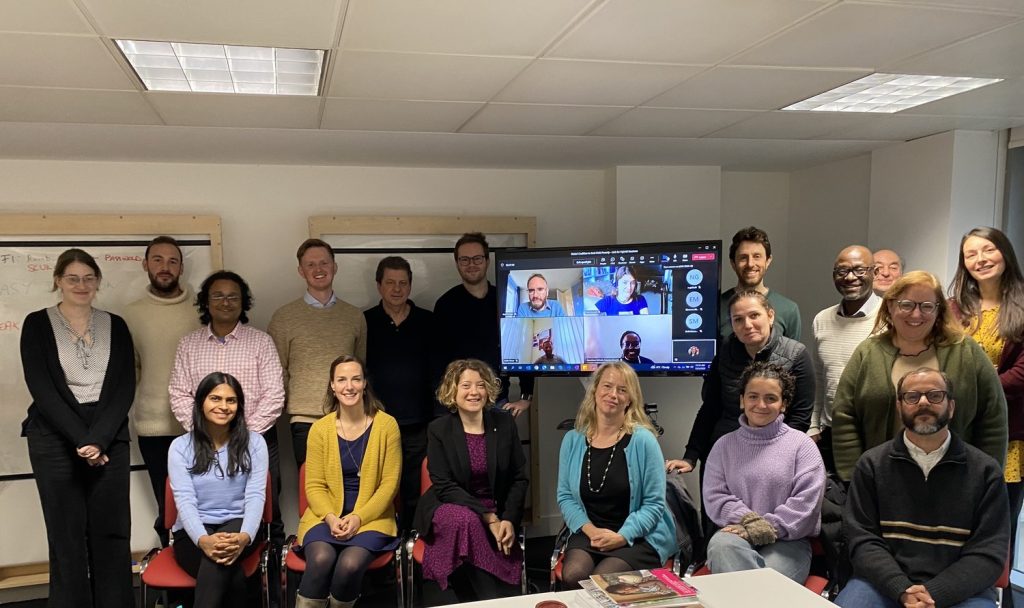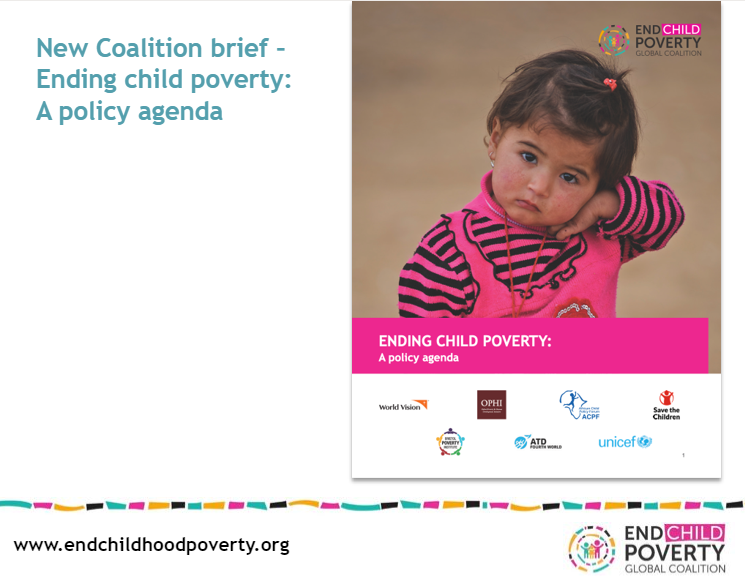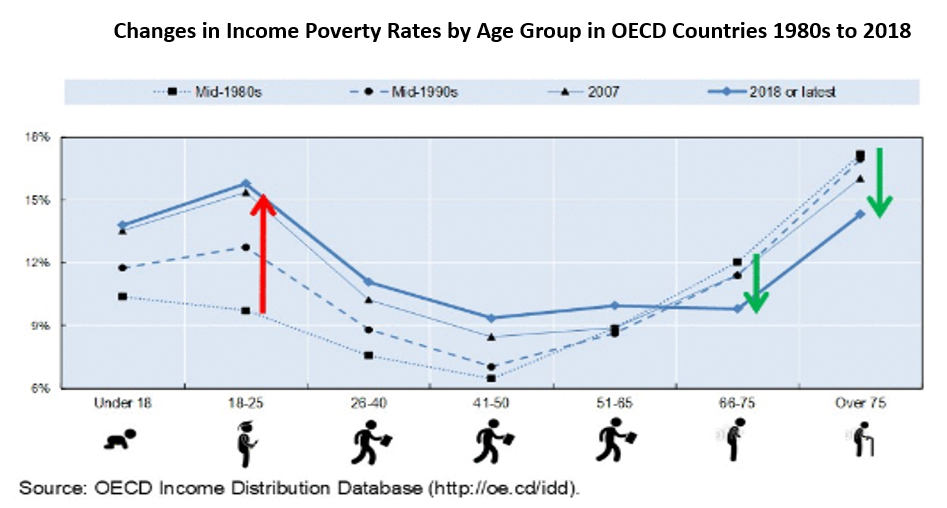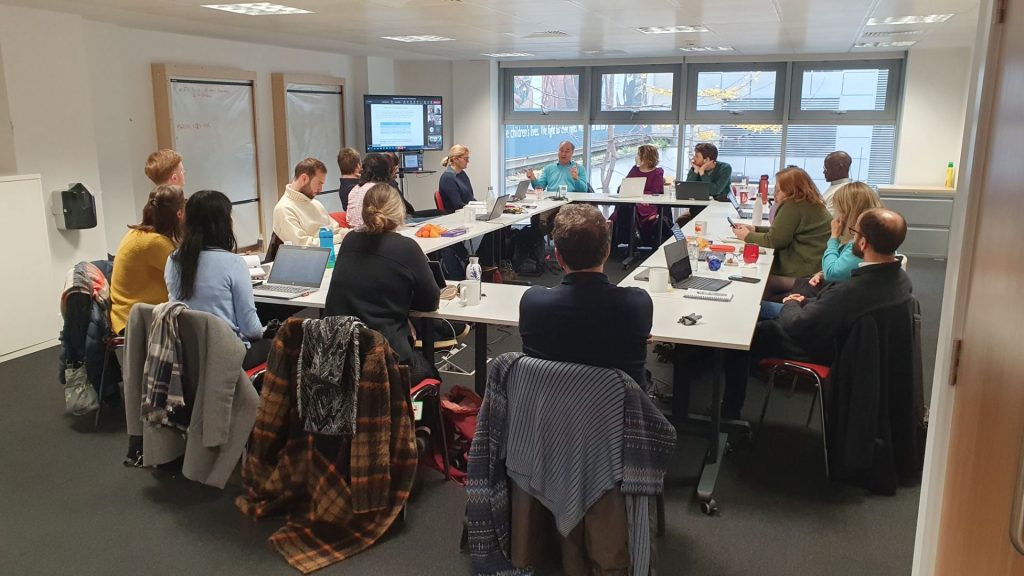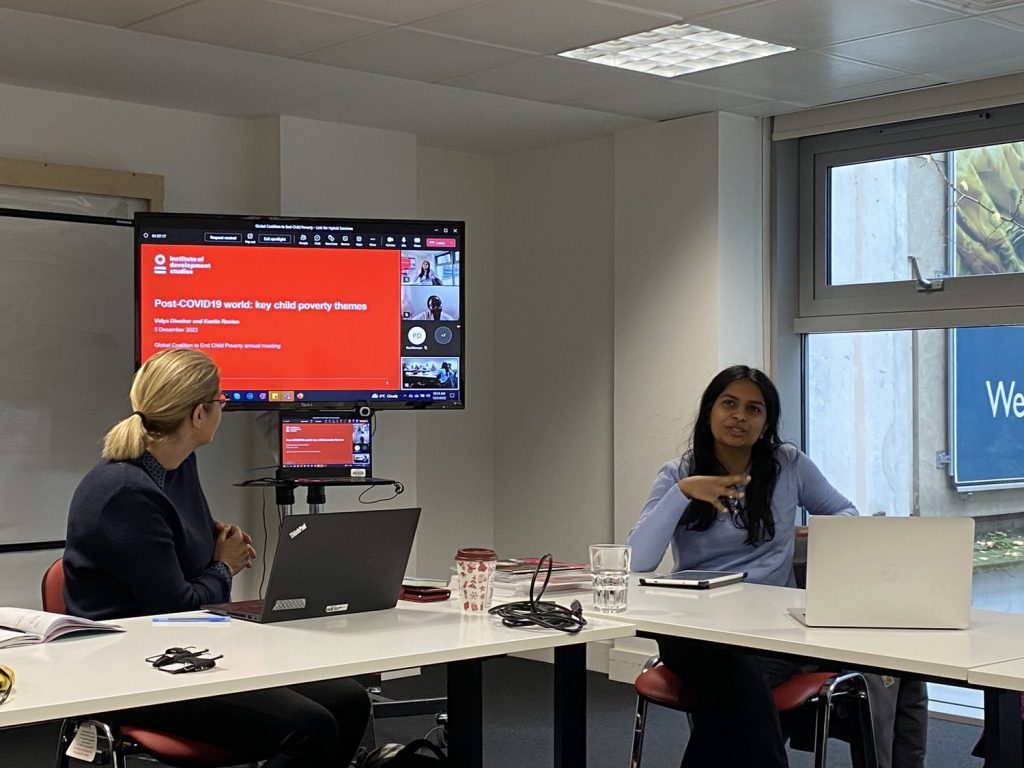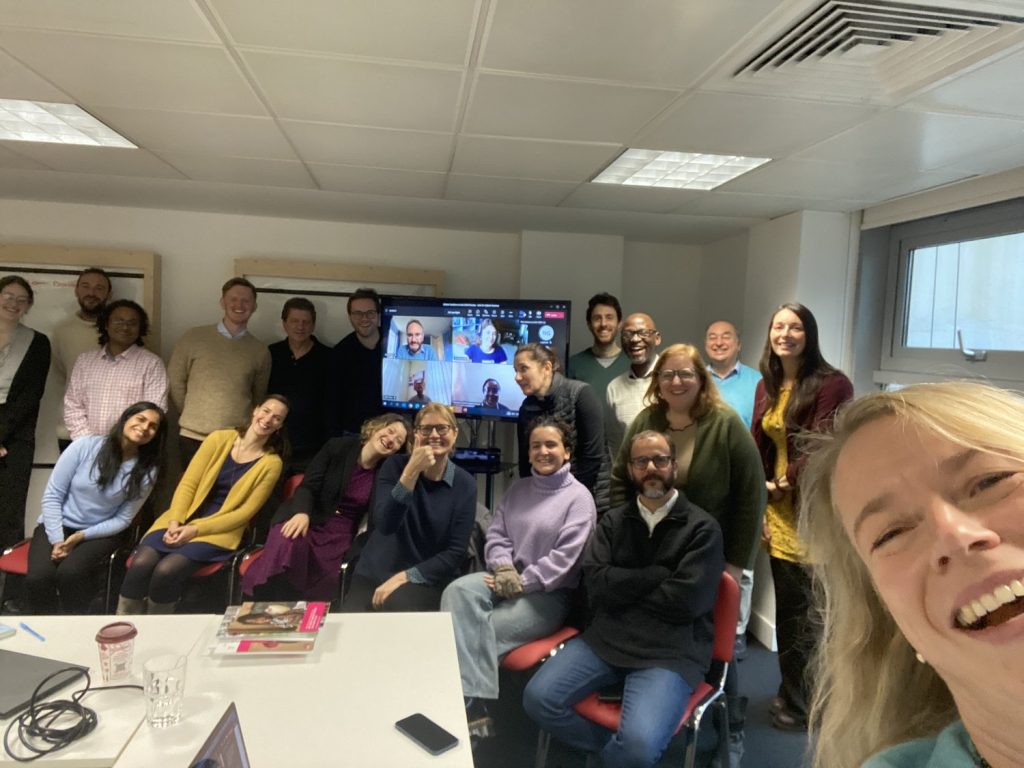The University of Bristol supports all of its staff to take one day of volunteering leave per year to help make a positive impact in the local community. This December the Bristol Poverty Institute (BPI) brought together teams of staff from across the University to return to volunteer at a local food bank and Social Justice Hub in the run up to Christmas, helping out a good cause and having a really rewarding, enjoyable day with colleagues in the process.
The BPI team are acutely aware of how many people now unfortunately have to rely on food banks, particularly with the escalating cost of living crisis. We wanted these volunteering days to also be an opportunity for members of the BPI community to get to know one another, and to mix with colleagues who have a shared ethos but whose paths may not ordinarily cross. We were delighted to bring together 26 volunteers representing academia, Research and Enterprise Division (RED), and the Research Institutes across three volunteering days in December.
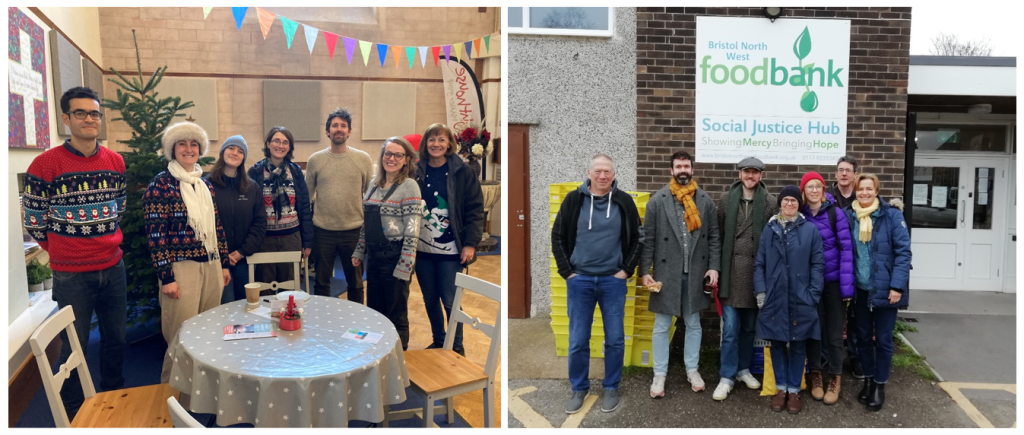
The volunteering days themselves were fantastic; the staff at the food bank were so welcoming, friendly, and helpful, and the work was really rewarding. Unfortunately we didn’t get off to the best start, with the first group’s day being cut short due to a faulty fire alarm; however, the team still really enjoyed the time they had, and are looking forward to make up some of the time in January along with a couple of colleagues who were unable to take part after testing positive for COVID.
The second group had better luck, spending a fulfilling day helping out on one of the ‘Christmas Hamper collection days’. Customers who had pre-booked were coming in to collect store cupboard food items as well as a range of fresh food including fruit and vegetables, bread, and frozen meat (or a vegetarian equivalent), plus toiletries and Christmas presents supplied for their families. In addition, there was a selection of other items which customers were able to collect including clothing and shoes, small electrical items such as kettles and phone chargers, hot water bottles, and plastic ‘Tupperware’ style containers. There was also a café area supplying free tea, coffee, soft drinks and cakes, which was manned by some of our University of Bristol volunteer team that day. Once all of the hampers had been collected and the donation tables and café area cleared away, the team spent the rest of the afternoon helping out with packing up presents and hampers for future collection days.
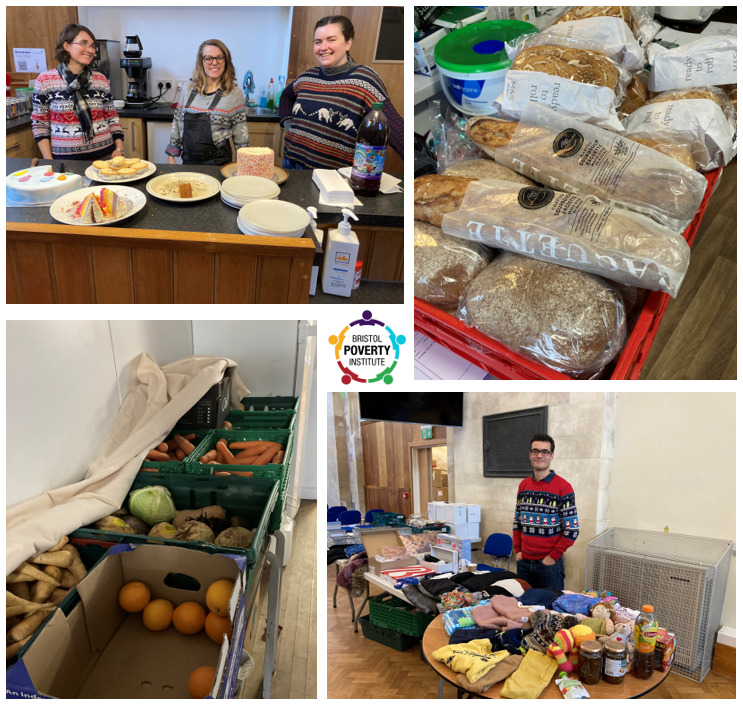
The final group – which I was a member of – began by making up 40 new Christmas hampers to be collected the following Monday. We were focussing on ‘family’ hampers, with a selection of staples along with some festive treats. A key message from the Assistant Manager and Volunteer Coordinator, Hazel, was to fill the hampers in a way that would bring joy when they were opened, with some of the more exciting items at the top and the boxes nicely filled. The contents included some tinned meat, stuffing and gravy for Christmas dinner plus mince pies, Christmas pudding and some custard, along with biscuits, crackers – both the edible type, and the ones which go bang – and some chocolate treats. We also added a box of cereal to each, a jar or bottle of sauce, some toiletries, and some fruit juice or other soft drinks, and each hamper also had a ‘Christmas exotic’ item, which ranged from cosy blankets to small toys to Christmas novelty items. It was really nice to see the effort the foodbank team put in to making people feel respected and valued, and ensuring that they have the best Christmas possible under the circumstances.
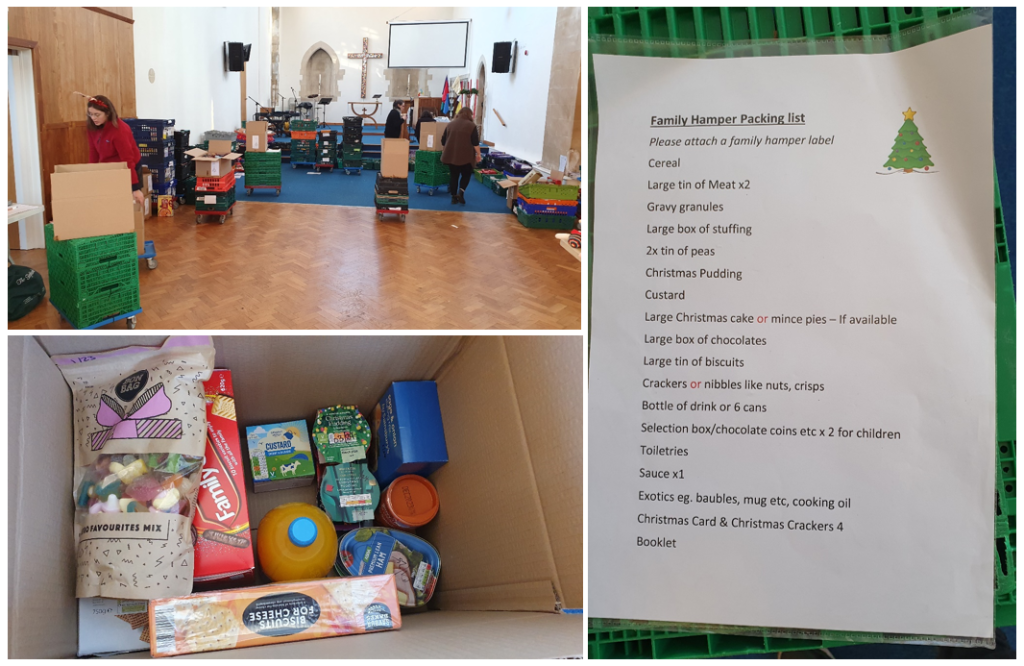
We also made up 50 Christmas bags for Ukrainian refugees, with a smaller selection of the above for each person. After we had packed all the hampers away and returned any remaining stock to the warehouse, we began the afternoon with a variety of small tasks, before heading back into the warehouse for the last couple of hours to sort through donations, check expiry dates and categorise products to help the warehouse teams with their distribution planning and ensuring as little as possible gets wasted.

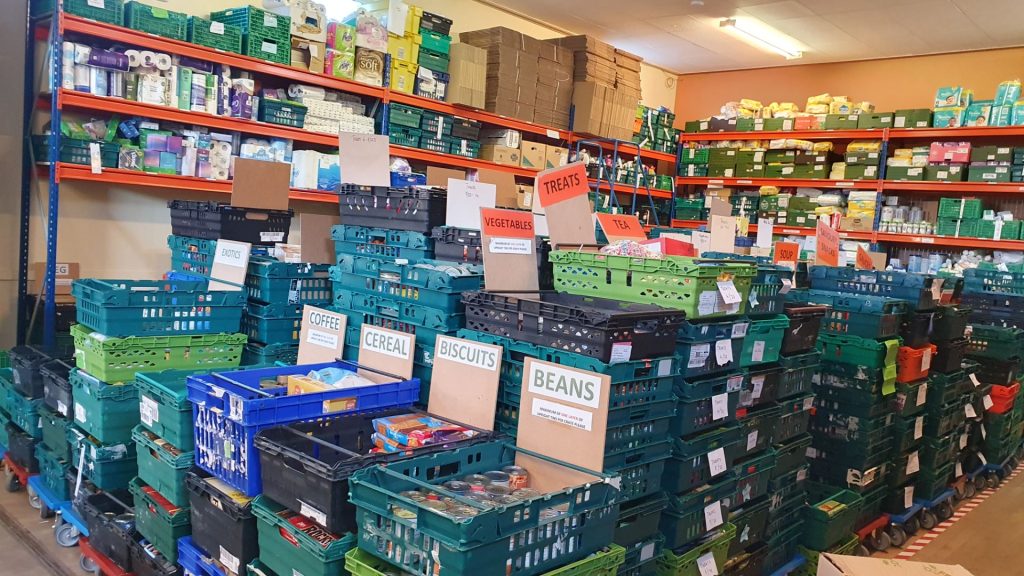
At the end of the day, we were given a tour of the foodbank and its facilities by Assistant Manager Hazel Craig. Hazel explained that they offered a range of services and support alongside the provision of food as part of the larger Social Justice Hub supported by the Trussell Trust. This included, for example, Home Bank, through which they are able to provide a range of household goods ranging from microwaves to towels to kitchen utensils and crockery. She explained that these are sourced from a range of different places; for example, they recently received a bulk donation of stove-top kettles from a caravan company. The Social Justice Hub, which includes the foodbank, receives donations from a diverse range of sources, including supermarkets, organisations, and individual donations of both items and money. One of our group asked Hazel which they would prefer, and she explained that both have their advantages and that receiving a combination of both physical items and monetary donations is therefore the ideal situation. This means that the majority of what they need gets delivered to them directly meaning they don’t regularly have to go out and buy and transport the products themselves; however, it also means they have some budget available if they are short of a particular item and need to top-up their supplies. Hazel encouraged the group to consider donating items like custard, rice pudding, UHT milk, toothbrushes/toothpaste, and sanitary products rather than just the usual pasta and baked beans, which they always have large volumes of. She also outlined some of the other services and opportunities available through the Social Justice Hub, including a workshop space for arts and crafts which is used for both training courses and more informal opportunities for people to come along, get creative, develop skills, and tackle social isolation. Finally, Hazel also explained how they run some other courses that can help people improve their quality of life, including courses on budgeting and their ‘Eat Well, Spend Less’ cookery course. It was fantastic and humbling to learn more about the range of services, support and opportunities available, and a stark reminder of the many dimensions of poverty and the different ways in which people are struggling.
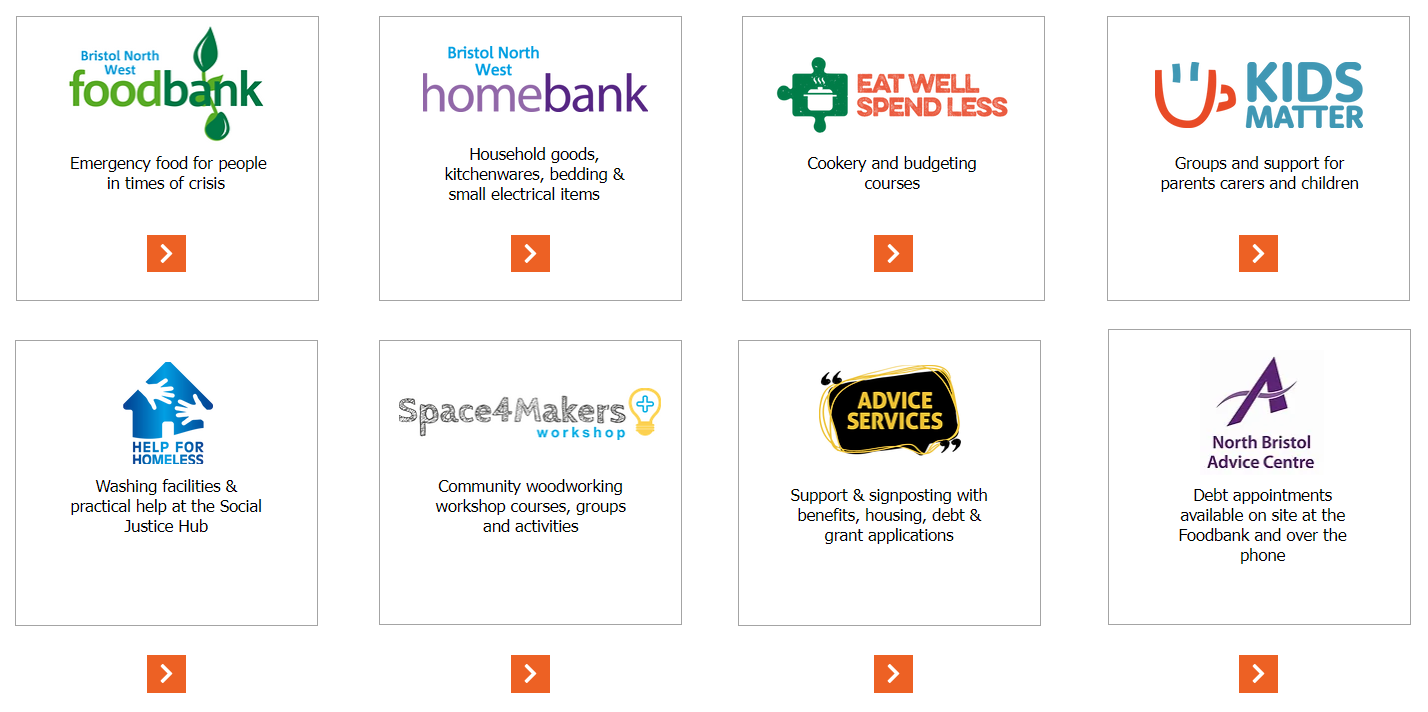
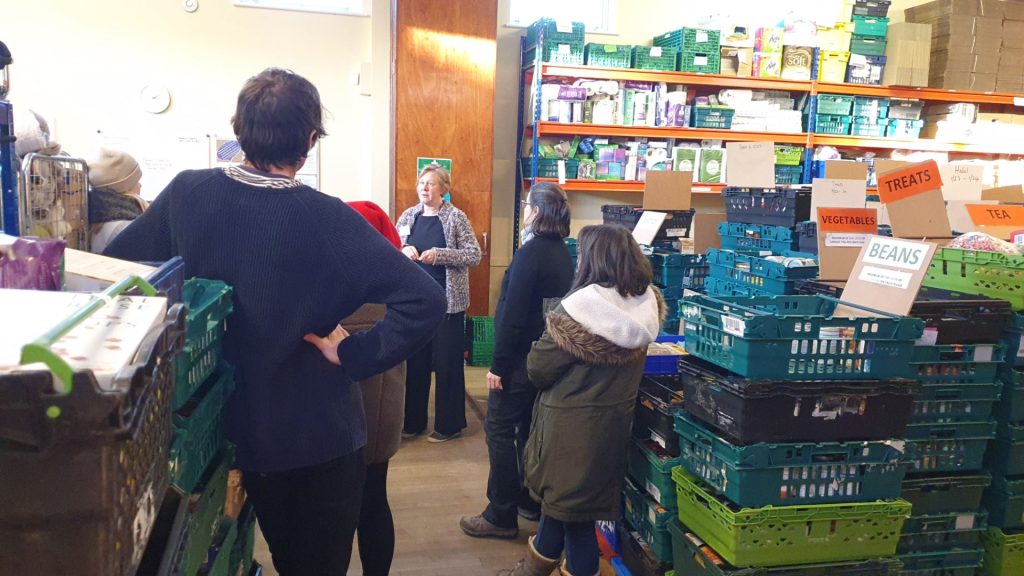
We all came away with a renewed drive to be more mindful about popping something in the food bank donation boxes every time we go to the supermarket or making a monetary donation when we can, as well as contributing to knowledge and trying to influence policy that may help to reduce the need for food banks in the future. Most supermarkets have donation boxes near the checkout, and many of them include a list of recommended/requested items. You can also find lists on food bank websites of the types of items they most frequently need (see the Trussell Trust website, for example), as well as lists of non-food items such as sanitary products, nappies, laundry detergent and toiletries alongside regular food items. It is shocking to be reminded that the first ever food bank in the UK was only opened in 2000 and numbers remained very low for the first decade before sky rocketing in the 2010s, and there are now reportedly more foodbanks in our country than there are branches of McDonald’s. In recent months their use – and need – has risen sharply and unsustainably in the face of the current cost of living crisis. It shouldn’t have to be this way. So, the BPI and our colleagues will continue to work to tackle poverty in all its forms everywhere, and to try and make a difference to ensure everyone has access to a decent standard of living and quality of life.
“It was a lovely thing to join in with – the team at the foodbank are amazing and it was great to meet and talk with some of their clients” – Volunteer.
“I had a really great day, and its inspired me to find an ongoing volunteering opportunity in my local area” – Volunteer
In 2023 we’re hoping to do something outdoors in the summertime, and then potentially come back to the foodbank in the run up to the festive season. If you’re a UoB member of staff interested in volunteering next year get in touch with the BPI team via bristol-poverty-institute@bristol.ac.uk to sign up to our mailing list, where we’ll circulate information on any volunteering opportunities as and when they arise.


